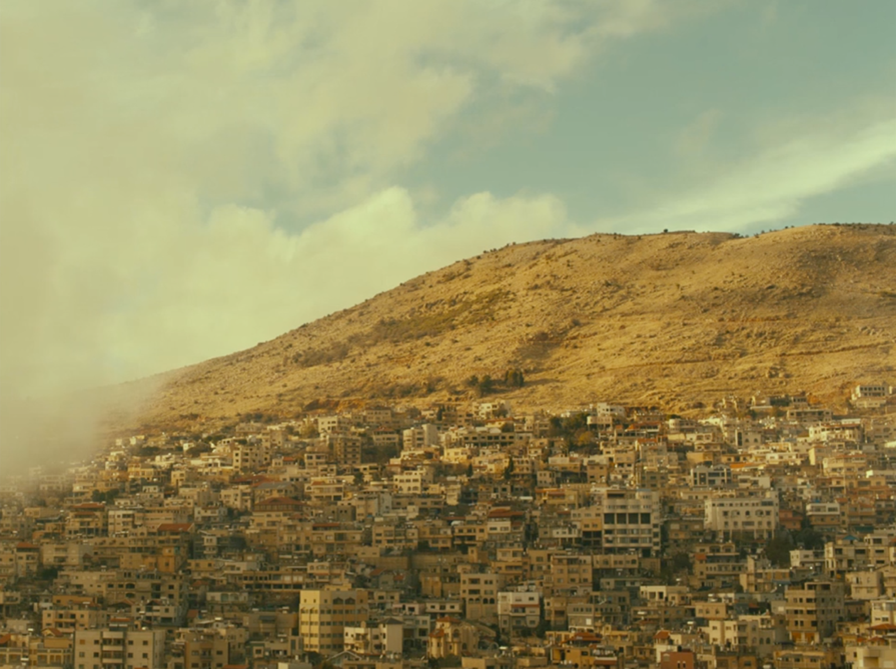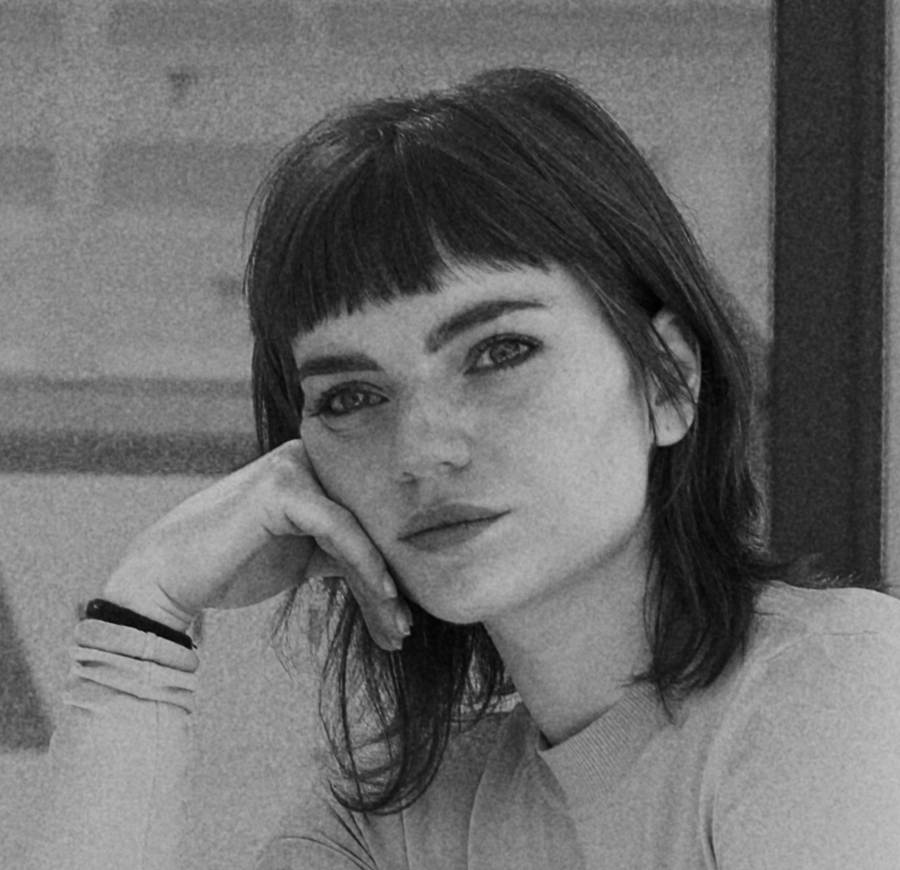Ameer Fakher Eldin's debut film “The Stranger” has been touring the world's major festivals for months, picking up award after award. What makes the work of this young talent from the Golan Heights so unique? And where does he go from here?
Fakher Eldin seems visibly uncomfortable during the Q&A after the screening. Although he does not seem to enjoy the spotlight, he knows it is necessary. He answers the questions calmly and seriously, always with a polite smile on his face. I can tell he is trying hard to hide his annoyance at having to answer the same questions repeatedly, like whether Camus’ prominent work The Stranger inspired his film.
We sit down on a staircase with a beer from the supermarket and a cigarette, away from the buzz of the festival. The conversation quickly falls into a natural back and forth.
Fakher Eldin was born in Kiev, but he grew up in Majdal Shams, a small village in the Golan Heights. Today, the director lives in Berlin and Hamburg. He knew from a young age that he wanted to be a filmmaker, when he started filming his village with an old camcorder. In his twenties, Fakher Eldin began working on his first major self-taught project, “The Stranger”, which he wrote, directed, and edited. The film experienced a quick, and in some ways unexpected, success, given that only a fraction of debuts ever make it that far.
In 2021, “The Stranger” represented Palestine at the Academy Awards. Since then, it has toured the world's major film festivals, from its premiere in Venice, to Toronto, Berlin, Amman and New York. In the process, Eldin has swept up one award after another. Most recently, "The Stranger" won "Best Arab Film" at the Cairo International Film Festival and was also nominated in the two top categories "Best Director" and "Best Cinematography" at this year's Asia Pacific Screen Awards.
For his second work "Yunan" Fakher Eldin was able to cast giants like Hanna Schygulla, the Lebanese actor and filmmaker Georges Khabbaz and Sibel Kekilli, known for her role as Shae in Game of Thrones.
Who is this young talent who has made it to the big screens in a matter of months? What distinguishes his work? What makes him stand out as an artist?
“This is not a movie to enjoy. But a movie to learn about desperation.”
This is perhaps the most apt comment I could find among the many reviews of "The Stranger." Fakher Eldin's film takes me by surprise. In the background of the beautiful and melancholic landscape scenes, bombs quietly fall from the sky far in the distance. The film is slow, almost stoic, sometimes so much so that I get nervous because Fakher Eldin holds me ‘captive’ for so long in the red velour covered cinema seat. I soon realize that I am left waiting for a typical plot line in vain.

Fakher Eldin tells me that he never had a conventional plot in mind. Rather, “The Stranger” is a character study of the main character, Adnan, who he only gradually "got to know" during the writing and filming process with Palestinian actor Ashraf Barhom. Adnan is a middle-aged man who has returned to the Golan Heights from Russia as an unlicensed doctor. He is a man visibly in crisis. Day after day, he leaves his wife and daughter behind to work in the orchards and drown his sorrows in alcohol.
The main character runs into thick walls whatever direction we see him go in the claustrophobic world Fakher Eldin paints on the screen. He is trapped in his aging body and mind, trapped in his own village community who sees him as a stranger, in unsuccessful relationships, and in a political context with no way out. “Adnan desperately longs for a utopian vision of his homeland that will never exist,” Ameer explains. A future of the Golan Heights free from occupation.
Trapped in context? The Golan Heights
The Golan Heights are a plateau of 1,300 square kilometers, about half the size of the smallest German state of Saarland, and are located in the mountains between Syria and Israel. The formerly Syrian territory was conquered by Israel in the 1967 Six-Day War and has been occupied ever since.
The reason Israel is so eager to retain control of the area, and Syria is equally determined to recapture it, is its strategic military location, which Israel views as a "buffer zone" between Iran-allied Syria and Israel. Israel is continuously building illegal settlements in the Golan Heights and has appropriated about 95 percent of the Golan Heights. Today, some 27,000 Syrian Druze live in the five villages on the Golan.
“By following Adnan, we can reflect the political situation through his inner world, his displacement can be understood as a metaphor for the Golan Heights. Adnan serves to characterize the feeling in the Golan Heights. He is alienated and unwanted, just like the Golan Heights in recent decades.”
Nevertheless, the film manages to confront universal themes far beyond its geographical context and translates them into worlds of feeling: alienation, existential despair, depression. “The Stranger: is not a classic drama about a so-called “conflict region” with cultural stereotypes tailored to the gaze of the usual international cinema audience. Those expecting a gripping drama about a so-called “crisis context” will be disappointed by Fakher Eldin's work.
Selling identity stories?
I ask Fakher Eldin if he made a conscious decision to not pander to the demand for Orientalist narratives in the art market, which often favors simple narratives about conflict and cultural identity. He smiles, “I was often asked to make a film as a Druze filmmaker from the Golan Heights, that really bothered me. There is no such thing as a Druze or Christian director.”
In the last decade, the marketing of cultural products with specific identity labels has become very popular. The growing awareness of how marginalization is related to ethnicity, race, gender, sexuality, nationality, etc., has led to a high demand for tragedy narratives directly related to the life experiences of cultural creators.
Especially after the summer of 2015, interest in “identities” from the WANA region increased rapidly in Berlin's cultural landscape, particularly relating to stories of conflict, tragedy, flight, and “integration”. "Cooking with Syrian Refugees," "Exile Theater," and "Refugee Rock Band"; this is how events were often advertised to predominantly white audiences. This demand, expressed by white, European political and cultural institutions becomes a ‘natural incentive’ for cultural practitioners to sell their art to fit within the Orientalist framework of the cultural market.
Thus, artists who are perceived as "others" - in this case, "oriental others" - are often faced with the challenge of avoiding that demand, but also the essentialization of their work by critics and the public. .
“As far as things are concerned, change is happening right now.” Fakher Eldin observes, “the big hype around the whole refugee issue is over, now we can start telling the actual stories.”
A filmmaker to watch out for
“The Stranger” is the first part of Fakher Eldin's trilogy “Home”. In an interview with Variety, he explains, “the first film, ‘The Stranger,’ is about a stranger amongst his people. The second one is about a stranger amongst strangers. All three films are about the theme of home.”
Shooting for his upcoming feature film "Yunan" is expected to begin as early as next year. Here Fakher Eldin wants to build on the character study approach and further explore the theme of alienation. This time, Fakher Eldin deals with a disillusioned writer in exile who travels to a remote island in the North Sea to come to terms with his life.
“It won't be the conventional way of dealing with the subject of exile in Germany, it goes much deeper than that,” says Fakher Eldin. “Yunan is a story of salvation and rebirth. It deals with the distances that open up relentlessly as we exile, between the unforgettable past and the present, between the present and an unattainable future,” he elaborates in an interview with the film magazine Deadline.
Ameer Fakher Eldin is undoubtedly a filmmaker, a creative to watch in the years to come. With his sharp observations and critical eye, he knows how to make the audience feel, observe, and reflect on the depths of the human experience, beyond the usual or expected narratives of conflict and misery.





















